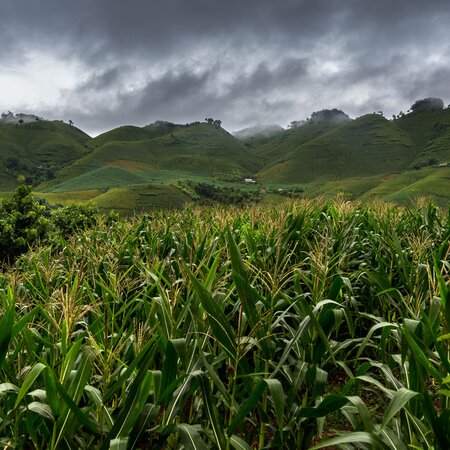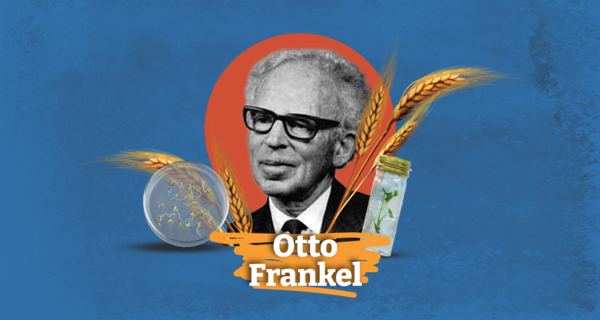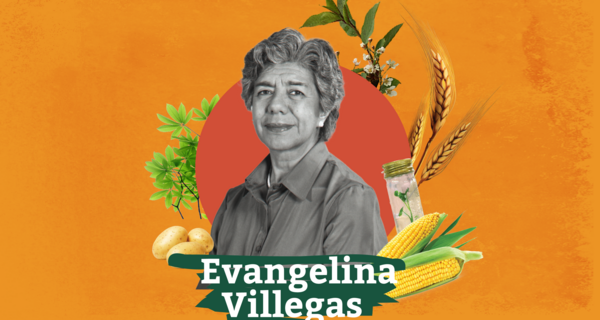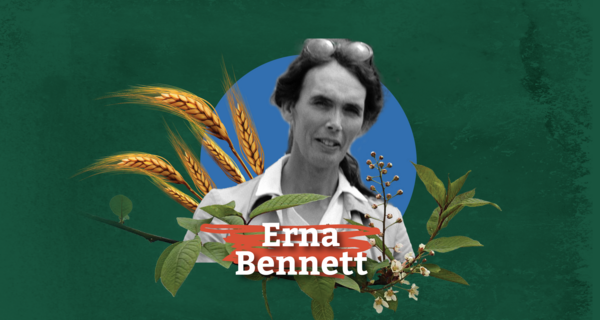Melinda Smale: Exploring the Economic Value of Crop Diversity Conservation
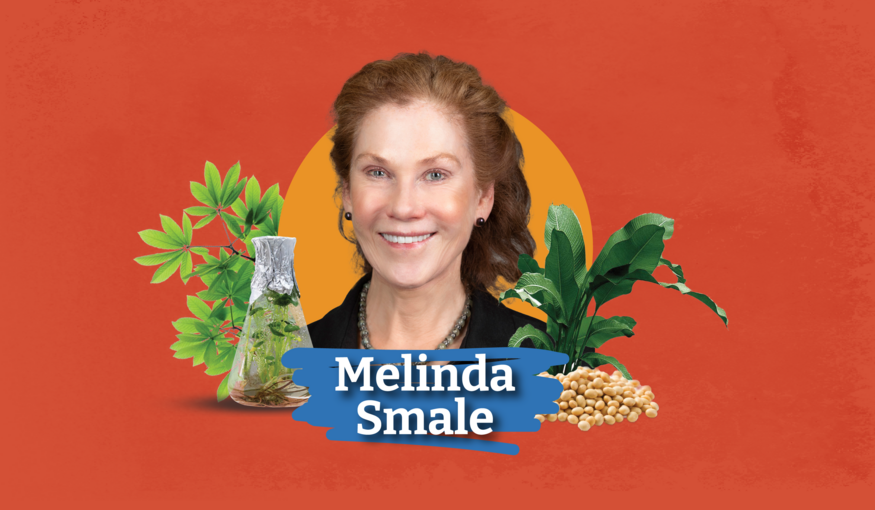
30 August 2024
This month, Melinda Smale enters the pantheon of Seed Heroes for her influential research on the economic value of crop diversity, helping shape agricultural policies across the globe and inspiring a generation of young scientists.
In a career spanning more than four decades, Melinda Smale has learned a lot about what crop diversity can mean for food security and economic development, and how its conservation and use motivate smallholder farmers.
Her research has advanced our understanding of the economics of conserving crop diversity both on farms and in genebanks. And her collaboration with countless early-career professionals around the world has inspired the next generation of social scientists keen to conserve plant biodiversity. Melinda Smale is a true seed hero.
The Value of Crop Diversity
Crop diversity is important because it enables researchers, plant breeders, and farmers to achieve several key goals. It can help them adapt agriculture to the climate crisis, reduce environmental degradation, and improve food quality, nutrition, and livelihoods.
Smale’s research focuses primarily on the economics of conserving crop diversity in farming systems, or in situ. She explores how economic factors influence farmers' decisions to maintain or shift away from cultivating traditional or local crop varieties, which are often very genetically diverse.
Throughout her career, Smale has provided valuable insights into the policies needed to support on-farm conservation of genetic resources. Her findings have informed international agricultural policy, particularly in developing countries, where biodiversity is both threatened and crucial for food security.
“Farmers determine the survival of crop populations and gene complexes when they choose varieties,” Smale and her co-authors wrote in the 2006 book “Valuing Crop Biodiversity.”
The Value of Genebanks
Smale has also championed the cause of conserving crop diversity in the world’s genebanks, however. This ex situ conservation brings diversity outside its place of origin and into seed collections that can be shared around the world. Plant scientists and breeders use these resources to tap genetic traits and produce new, improved varieties of crops that are better suited to changing climates and conditions.
“Our analysis of the literature suggests that the economic value of genebanks is likely to be understated when derived only from the yield impacts of varieties on farms,” Smale and co-author Nelissa Jamora wrote in a 2020 paper published in a special issue of the journal Food Security. “Diverse crop varieties, and the germplasm they embody, contribute many other benefits to farmers and society as a whole, such as reducing the potential economic costs wrought by plant pests and diseases as well as climatic variability.”
Smale’s support for ex situ conservation led to her mentorship of young scientists in the Genebank Impacts Fellowship Program run by the Crop Trust as part of the CGIAR Genebank Platform.
“Mentoring young people is important for us in the profession, and particularly women students and researchers from developing countries,” Smale said in a 2022 interview." Serving as a mentor is not entirely altruistic. We share in the joy of advancing research, conference presentations, and publications.”
A Heroic Record of Research
Based on extensive fieldwork in Africa, Asia and Latin America, Smale and her colleagues have published more than 100 peer-reviewed articles, written roughly 200 working papers, and contributed to many books and book chapters. This ground-breaking research has generated over 15,000 citations from her peers.
Smale joined Michigan State University in 2011 as a professor in the Department of Agricultural, Food, and Resource Economics (AFRE). In the department’s Food Security Group, she worked with research partners in Burkina Faso, Kenya, Mali and Zambia, benefiting farmers in these countries and beyond. Professor Smale retired from full-time teaching in January 2023.
“Melinda Smale has made an indelible mark on agricultural development economics,” AFRE Chairperson Scott Swinton said in 2022. “She largely innovated economic analysis of crop genetic resources, and her insights into gender differences in how household members adopt crop technologies, have transformed extension outreach in many places.”
Early Life
Melinda Smale was born in Evanston, Illinois, in 1956.
“I was a child during the 1960s in the United States so, as you can imagine, I was very concerned about our society,” she said in a 2022 interview with the Crop Trust. “I remember talking one evening with others about economics in college. If I follow that – I thought – I can depict, I can structure, or maybe even predict or change what I see around me.”
Smale earned a Bachelor of Arts degree at Duke University, followed by a Master of Arts at the Johns Hopkins School of Advanced International Studies, a Master of Science at the University of Wisconsin-Madison and a doctorate in agricultural economics from the University of Maryland.
During the 1980s, the young agricultural economist worked in Pakistan, Somalia, Mauritania and Niger, publishing papers on topics ranging from wheat harvest technology in Punjab through to the effects of drought and migration on the economic status of women in Mauritania.
While living in Malawi and later in Mexico over the next decade, she analyzed the adoption and impacts of improved wheat and maize seed. With plant breeders and agronomists at CIMMYT, Smale also conducted analyses of Mexican maize landraces and global patterns of wheat genetic diversity in farmers’ fields.
At IFPRI and Bioversity International, she led a global research program about the economics of crop genetic resources in the early 2000s, according to her Michigan State University profile. The team studied biotech crops, genebanks, on-farm crop diversity, local seed markets, and underutilized crops in countries such as Mali, Uganda, India, Nepal, Bolivia, Colombia and the Philippines.
After more than 40 years in her profession, Smale was named fellow of the Agricultural and Applied Economics Association – the organization’s highest professional honor – in 2022.
“When I received the phone call about the award, I broke down,” she said in the Crop Trust interview. “For many years I didn’t feel included. I feel included now.”
Today, the Crop Trust is pleased to include Professor Smale among its Seed Heroes – pioneers in the field of crop diversity whose work has positively impacted people and the planet.
Timeline:
1956: Born in Evanston, Illinois, USA
1977: Earns Bachelor of Arts degree at Duke University, majoring in history and French
1979: Completes Master of Arts at Johns Hopkins School of Advanced International Studies, focusing on Africa
1983: Completes Master of Science in agricultural economics at the University of Wisconsin-Madison
1992: Awarded Ph.D. in agricultural economics at the University of Maryland
1989‒2001: Research associate (in Malawi) and economist (in Mexico) with CIMMYT
2002‒2005: Economist at Bioversity International and IFPRI
2006‒2008: Senior research fellow at IFPRI
2011‒2022: Professor of International Development at Michigan State University
2022: Named fellow of the Agricultural and Applied Economics Association (AAEA)
2023‒present: Full Adjunct Professor at Michigan State University
Categories: For Educators, For The Press, For Partners, For Students, Genebank Platform, Poverty Reduction, Sustainable Agriculture

